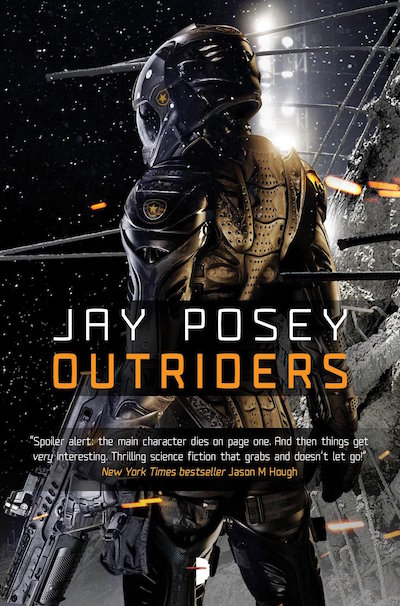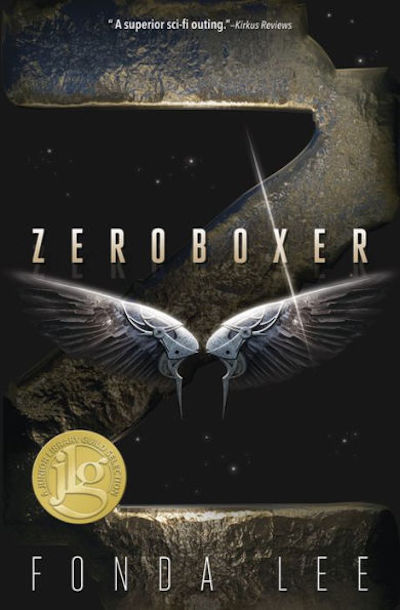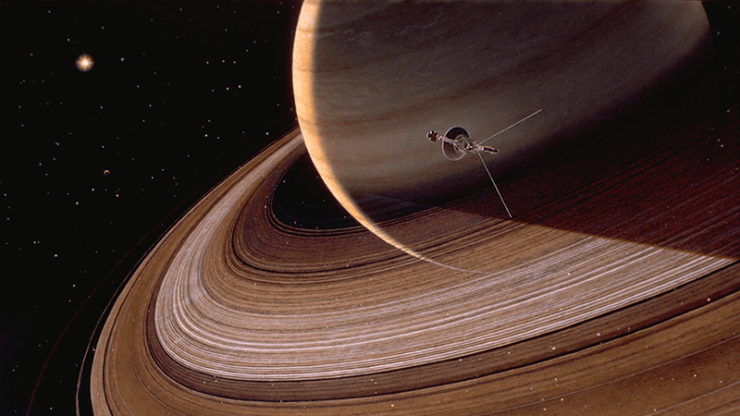I enjoy reading interplanetary adventures, of the sort where the authors aim at some scientific plausibility. Happily, we live in a golden age of such stories.
Here are some recent publications that you may have overlooked. IMHO, they’re worth consideration on their own. They also demonstrate the range of possibilities for new-style interplanetary adventure.

Jay Posey’s Outriders (2016) is the first in his ongoing Outriders series and the only book on this list that could also be classified as military SF. The name of the 301st Information Support Brigade’s 519th Applied Intelligence Group appears to indicate that what they do is monitor media feeds and engage in social engineering (in support of the United American Federation, which is only one faction in a divided Solar System). In practice, the intelligence game is a vigorous one, which is why Captain Suh and his compatriots have been issued powered armour and provided with the means for serial incarnation should something happen to their current bodies.
Readers looking for clear-cut good guys and bad guys should look elsewhere. Suh is loyal to his unit and to his nation, but there is little evidence that the UAF and its Eastern Coalition and Martian rivals can be sorted into the right side and wrong side. There’s really only Suh’s side and everyone else.

S. J. Morden’s One Way (2018) starts off as a modern-day answer to Heinlein’s character D.D. Harriman. Having won a lucrative contract to build a base on Mars, Xenosystems Operations boldly embraces an innovative scheme to build the base on budget by drawing on a resource the US has in abundance: long-term prisoners with no hope of release. This population is large enough that Xenosystems can easily recruit skilled individuals desperate enough to agree to a one-way mission. It may be a short mission: Mars is dangerous. It turns out to be even more dangerous than expected when one recruit seems intent on killing off their companions, one by one.
If you like mysteries set on snowbound trains, in isolated chateaus, or desolate islands, puzzles in which killers manage to slowly work their way through the rapidly dwindling cast while said cast desperately tries to catch the killer, then this book is for you.

In the world of Silvia Moreno-Garcia’s Prime Meridian (2017), anyone with the right combination of money, skills, and/or certification can buy or trade themselves for a ticket to the Martian cities. Amelia is broke. While she may have the skills needed to qualify for indenture, she doesn’t have the diploma. Instead she’s trapped in a precarious job, role-playing being a friend to friendless people with the money to hire substitutes . And then her life takes a very unexpected turn.
Moreno-Garcia has a World Fantasy Award on her shelf. It’s no surprise Amelia is as vividly realized as she is, or that this short work is so engaging.

Fonda Lee’s Zeroboxer (2015) describes another world where economic desperation inspires people to take significant risks. In Carr Luka’s case, he risks his long-term health by joining the Zero Gravity Fighting Association. The odds are against Carr … but he has an edge. Too bad that his edge is utterly illegal.
Many sports stories lack verisimilitude; Lee has black belts in wushu and karate. Some authors think action alone makes an interesting book. Lee knows that it’s the right kind of action (authentic, well-written) that engages readers’ interest. Zeroboxer is proof.

Der-shing Helmer’s ongoing webcomic Mare Internum focuses on embittered, deeply troubled scientist Mike Fisher and his colleague, ambitious Doctor Rebekah Egunsola. Having blotted his copybook spectacularly, Mike’s tour on Mars is due to end soon. Before the disgraced researcher can be sent back to Earth, Rebekah convinces Mike to take her on a tour of the enigmatic caverns recently found on Mars. Cue a cave-in, and the revelation that Mars is not entirely a dead world.
Mare Internum is a First Contact novel, complicated by the fact that Mike has good reason to doubt the evidence of his senses. Given that Mars is as dead as a doornail/hockey puck/White House staffer’s heart, it’s tricky making readers believe in Martian entities larger than a microbe; Helmer pulls it off. She also manages to engage the reader’s interest despite focusing on a very small cast of characters: Mike, Rebekah, and three others.

Paul Drye’s False Steps: The Space Race as It Might Have Been (2015) is non-fiction. It’s a history of space vehicles proposed and never built. Drye presents a cavalcade of the gloriously doomed ideas of the past—some doomed because they were unlucky, some because they were manifestly deranged. Short but densely packed with information, it’s a must-have for people curious about the what-ifs of the space race.
I’m certain to have missed some of your favorites. Tell me about them in comments.
In the words of Wikipedia editor TexasAndroid, prolific book reviewer and perennial Darwin Award nominee James Davis Nicoll is of “questionable notability.” His work has appeared in Publishers Weekly and Romantic Times as well as on his own websites, James Nicoll Reviews and Young People Read Old SFF (where he is assisted by editor Karen Lofstrom and web person Adrienne L. Travis). He is surprisingly flammable.










